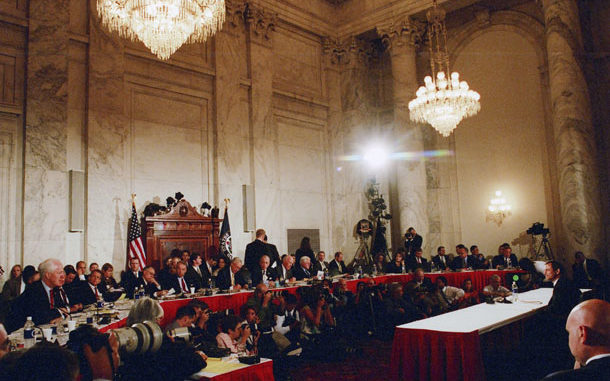
How Congress Operates.
In order to complete Congress’ work of reviewing legislation, conducting oversight, and holding hears on matters relevant to the public concern a system of congressional committees was created. Though not part of the Constitution, committees quickly became part of the unwritten Constitution and a part of the rules of Congress.
As a consequence, members of Congress are able to specialize in matters that they are interested in or directly related to their constituents. The fragmentation of the work of Congress into committees dilutes the power of each chamber into committees, subcommittees, and the chairs of these committees. This is especially true of the House of Representatives. While the power of committees has waned over time, committees and their chairs still hold enormous power in the legislative process.
Examine the list of standing committees in the House and Senate provided by GovTrack.org and answer the questions that follow. You will also need to pull up your Congressperson’s website. Their information is available here.
Questions for Completion.
1. Based on the list of committees, what are some key differences in committees between the House and Senate?
2. Select one committee to examine closely. What issue(s) is this committee dealing with lately? What notable bill or bills has it dealt with lately?
3. What committees does your member of Congress sit on? Which committees do you think they wanted to be on? Why?
4. In your opinion, what are the positives and negatives of the committee system? Why?